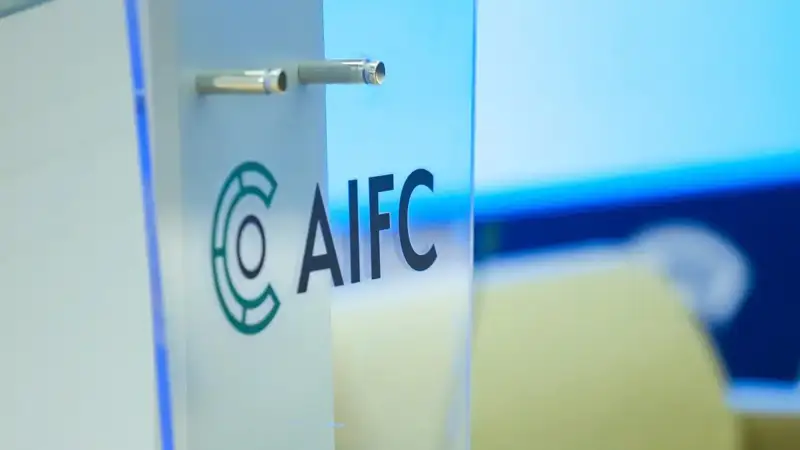In 2018, the Astana International Financial Centre (AIFC) was launched which is a major step towards modernization of the financial environment in the country. The AIFC is patterned after other international finance centres such as the Dubai International Financial Centre in a bid to pull foreign investments, promote innovation and incorporate top-quality financial technologies, such as digital currencies. My article discusses the importance of the AIFC in the financial market of Kazakhstan and how well the country has moved into the promotion and introduction of digital money, especially the digital version of the tenge. It reviews the regulatory systems, technological changes and economic consequences to which credible sources are used in order to give a thorough analysis.
The AIFC was opened in July 2018 and the main missions of the AIFC are foreign direct investment (FDI), popularization of financial services, and innovation in Kazakhstan and Central Asia, in general. Led by Astana Financial Services Authority (AFSA), the AIFC provides tax incentives, convenient workforce regulations, and the freedom to transact using any currency, which makes it appeal to international investors.
The AIFC legal framework is not identical to the ones applied in Kazakhstan nationally, which grants the center a business-friendly environment, including independent courts and an arbitration center. This framework has done a lot to generate confidence among international investors, something that significant business entities such as Chevron and Tengizchevroil have embraced using the arbitration center of the AIFC in settling disputes. In 2024, the AIFC had already processed more than 536 disputes in terms of arbitration awards and settlements through mediation, which highlights the expansion of its power.
The AIFC has a strategic intent of going beyond conventional finance to support the new technologies, especially digital assets and blockchain. Its regulatory sandbox which begins as early as 2018 enables fintech firms to experiment with new solutions in the controlled environment, which helps to develop digital currencies and other technologies.
The Cryptocurrency trend by Kazakhstan promotes the international move towards using digital currencies in the global financial system. National Bank of Kazakhstan (NBK) has been on the forefront in the design of central bank digital currency (CBDC), the digital tenge, to achieve financial inclusion, transparency as well as efficiency in its transactions. The digital tenge project demonstrates the general goal of Kazakhstani economy modernization and its integration into the world financial system.
Kazakhstan in the general context of the first interactions with digital currencies started with the dominance of the country in the field of cryptocurrency mining high availability of cheap energy and favorable policies. By 2021, the mining of Bitcoin rapidly increased in the country as China takes action to ban the practice, thus making Kazakhstan one of the world mining centers. Nevertheless, crypto market volatility and energy crisis caused the authorities to make it restricted, such as the ban on the circulation of unsecured digital assets beyond the AIFC.
Kazakhstan responded to these issues by putting up comprehensive regulations in February 2023, signed by President Kassym-Jomart Tokayev. The Law on Digital Assets and the Amendments Law created a platform to issue, circulate and tax digital assets, and the AIFC will be the main location where it will take place. These legislations involved licenses on digital mining and that the miners should sell some of their stock through exchanges registered with AIFC, beginning with 50% in 2024 and 75% in 2025.
The Digital Tenge Project
The NBK initiated the digital tenge initiative with a view of developing a CBDC that complements the national currency, the tenge. Digital tenge, unlike cryptocurrencies, it is a state-controlled currency that would work within a regulated money system. The project is expected to enhance financial inclusion, allow offline payments and increase transparency of the processes in the field of public procurement and payments in cross-border transactions.
Following are the stages of development of the digital tenge:
- Stage 1: In the pilot phase from 2021 to 2023 the NBK completed trial runs to find out the viability of the digital tenge. These pilots aimed at use cases, which included digital VAT refunds, targeted provision of funding across infrastructure and cross-border payments scenarios. By 2023, the NBK managed to complete a pilot project, which proved that the currency could facilitate the offline payments, which was important because of the limited internet coverage in the relevant regions.
- Stage 2: In the implementation stage from 2023 to 2025 the stage entailed bringing the digital tenge into the system of payment of social benefits and purchases of goods and services by the state. According to the NBK, as of July 2025, it had tested more than ten ways to use public spending involving activities such as real estate dealings, agricultural lending, and purchases of goods with a high cost. The connectivity with the government systems has opened the door to getting into full-scale operations by the end of 2025 with quarterly progress reports on transparency.
- Future Roadmap: NBK seeks to introduce a strong medium term plan of adopting the digital tenge on public finance. The applications of the currency are growing due to new pilots, including the so-called Safe Deal program to facilitate real estate and vehicle purchases, as well as state support using vouchers.
The adoption of the digital tenge has strengthened the financial inclusion agenda and the rate of non-cash payments is projected to expand to 102.8 trillion tenge in 2022 (or 99 percent of the map GDP). The digital tenge helps solve connectivity issues in rural regions by functioning even when a person is not online, which is also part of the idea of inclusive economic development supported by the government.
CryptoCity
President Tokayev declared in May 2025 his intentions to establish a pilot area, the “CryptoCity” where cryptocurrencies would be allowed to be used to purchase goods and services. This program will see the inclusion of online money in the everyday exchanges, which can revolutionize the financial arena of Kazakhstan.
AIFC as Centre of Digital Currency and overview of AIFC First Half Report of 2025
AIFC has been at the centre of enhancing digital currency in Kazakhstan. The collaborative capacity of AIFC with other leading financial institutes in other countries and the application of the English Common Law have boosted the degrees of its reliability to call more fintech companies and investors.
The arbitration center of the AIFC has been instrumental in the development of trust as well. It gives assurance to the security and enforceability of digital asset transactions because the resolving of conflicts is done with a transparent and globally accepted legal framework. The involvement of the center in cooperation with such companies as Herbert Smith Freehills and the hosting of such events as the IAC Eurasia Arbitration Week 2024 shows its dedication to internationally oriented practices.
The Astana International Financial Centre (AIFC) has been represented with respect to the successful working results made during the first half of 2025 establishing the haven of financial hubs in Eurasia. The following is an overview of some major findings, events and developments.
- 567 new companies registered including 4 fintech firms, 5 Ancillary Service Providers and 7 financial license holders so as to give total of the number of 4,030 companies being registered in 85 countries.
- Generated 2.6 billion dollars’ worth of investments towards a total figure of 16.9 billion dollars.
- More than 70 billion tenge in contribution to taxes to the budget of the state of Kazakhstan (preliminary figures).
- 10,000 jobs created.
- Global Ranking Topped the Global Financial Centres Index again, and ranked first in Eastern Europe and Central Asia.
- Dodo Brands based in Virgin Islands moved to AIFC under Dodo Pizza and Drinkit.
- Economic cooperation with Azerbaijan: conducted research on the basis of ADA University Institute of Development and Diplomacy, publishing reports on cooperation between Kazakhstan and Azerbaijan in the field of economy, money management, carbon regulation, creative industry development.
- There were 19 sessions (236 professionals) trained by AIFC Academy on law, finance, compliance, and data protection.
- Has retained Gold Agent status with BARBRI relating to technology enabled law continuing education.
- AIFC Handled 3,961 cases, 189 court decrees, 3,772 arbitration decisions and mediation deals.
- The AIFC Court is open to investors of 34 jurisdictions, and 789 lawyers in 39 jurisdictions are registered in the AIFC Court.
- AIFC has offices in Astana, Almaty, Beijing and hearing rooms in eight countries of Eurasia.
- More than 6,000 people have already been trained at the AIFC Court and IAC Training Centre.
Opportunities
- Financial Inclusion: Offline potentials of the digital tenge allow providing high opportunities to enhance financial services access in an underbanked area.
- Cross-Border Transactions: Incorporation of the digital tenge into cross-border electronic payment systems may boost the position of Kazakhstan on the regional trade, especially within the Eurasian Economic Union.
- Global Investment: The policies and regulatory sandbox established at the AIFC place Kazakhstan on the map of the fintech innovation with foreign investors being willing to check the set up and the prospects such as Master Card and the U.S. financial services providers.
In the end I must say that the AIFC and the digital tenge project are the bold attempts to modernization by Kazakhstan in terms of finances. With the help of the novel regulatory model provided by the AIFC and the strategic vision of the NBK, Kazakhstan is establishing itself as a Eurasian and Central Asian leader in the digital financer. The gradual introduction of the digital tenge indicates the moderate attitude towards innovation and regulation in combination with the possibilities of the AIFC sandbox and arbitration. The strong performance by AIFC in H1 2025 emphasizes its increasing presence as a central financial center, where investment, innovation and sustainability occur and seen to benefit Kazakhstan and its economic capabilities and global connections.

Mr. Muhammad Ali Pasha is a “Foreign Affairs Expert”. Furthermore, he is a author and poet.
Note: This article is the intellectual property of the writer. If any content will be republished without the consent of author then it will be consider as forgery and fraud.
Owner and Patron-In-Chief of “The Gulf Observer”, Chairman “The Gulf Observer Research Forum”, Foreign Affairs Expert, Analyst, Writer and Poet.












